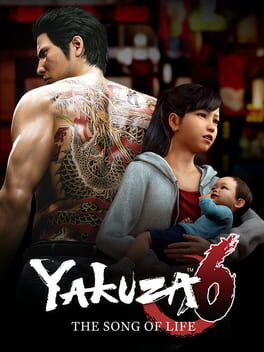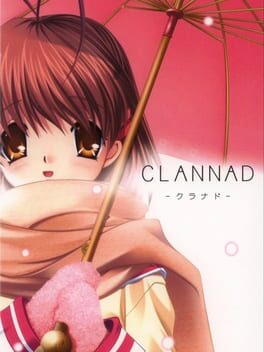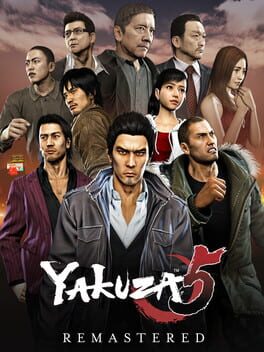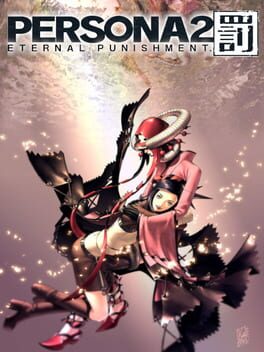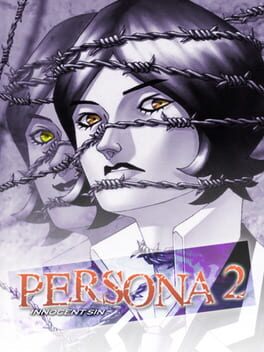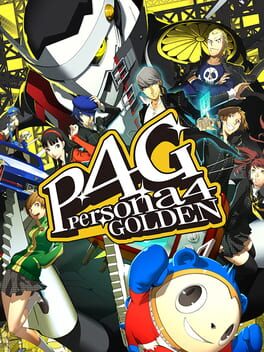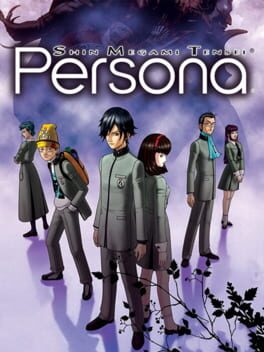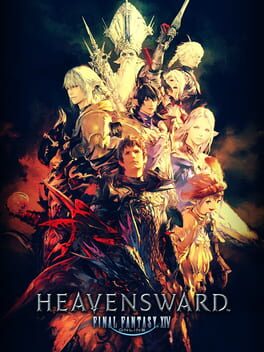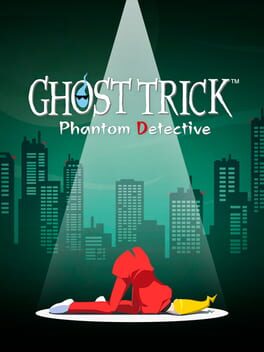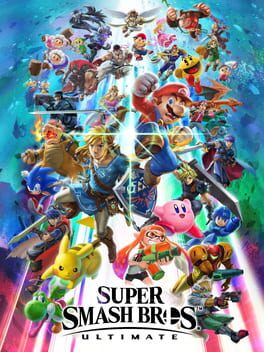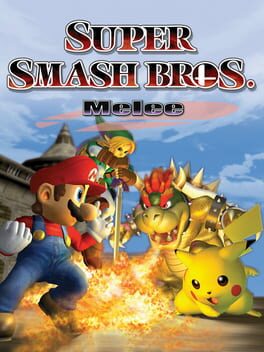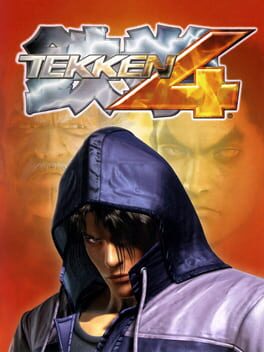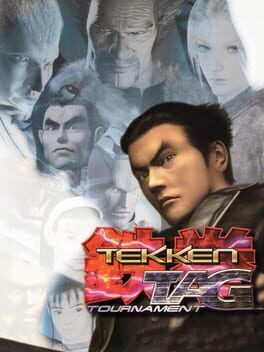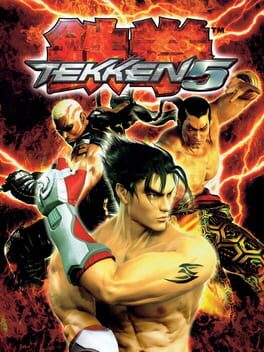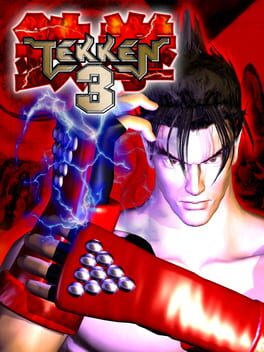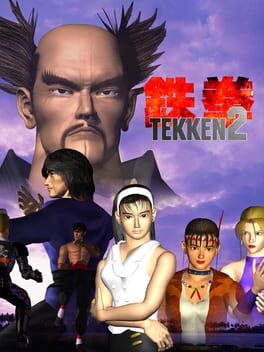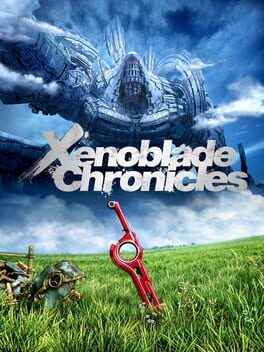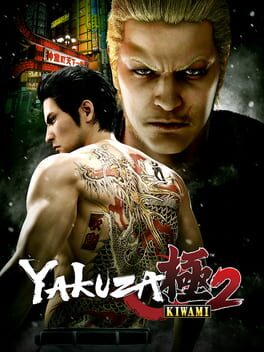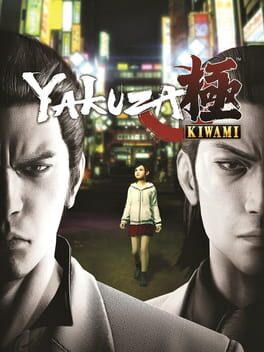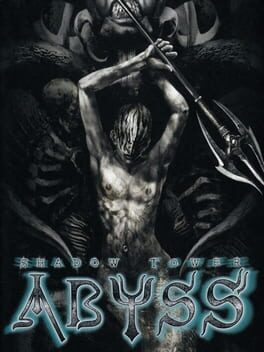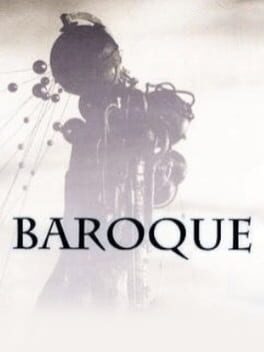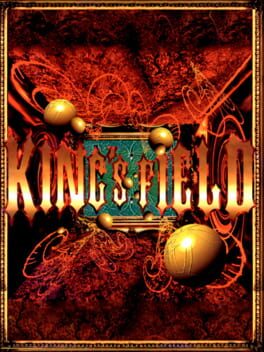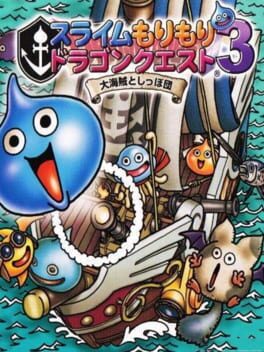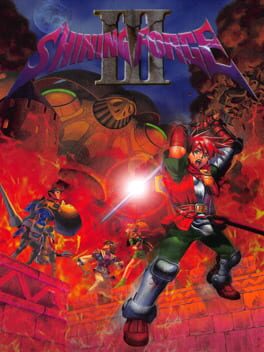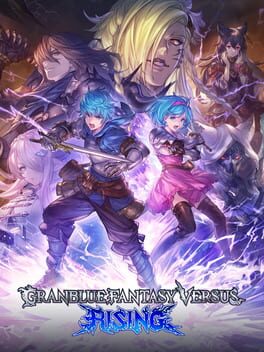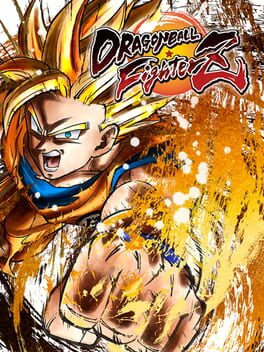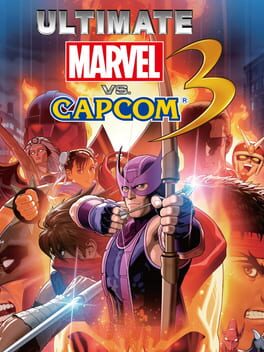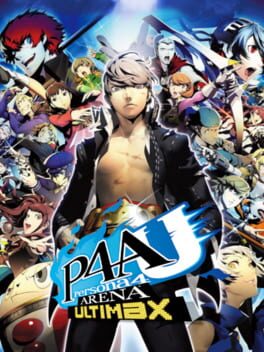TheBigBurger
933 reviews liked by TheBigBurger
Persona 3 Reload
2024
Persona 3 was always on my mind in terms of wanting to play on it regardless of mutuals back then hyping about it or having deep talks with it, it always interested me in a way.
Eventually got me playing the FES version which it's not a bad in ways to most people but it always rubbed me and felt it wasnt interesting as went on and suddenly dropped in the middle of the game. I geniuely felt that i was forcing myself to play it and eventually felt it wasnt healthy in a way to get through when the famous quote '' xx hours the story gets better'', i really don't think i maintain the same the same line of thinking that i had years ago especially after finishing the remake.
Hearing a lot of rumors about Persona 3 got me a bit hopeful on thinking of the nature of playing games in a way, i never hold expectations on games except on 2 series that i always hold a bit of high regard since i've always keep my eyes on and what to expect but Persona for me is a bit different, especially when i have a lot of issues that i don't like to talk about it especially talking with most of the circles i was and i'm still in but i was always open to try a Persona game even if the perception of people were 50/50 a bit of the time. In a way, it's fun the way it was present and showed for the first time but it was exciting to look forward to play a Persona game that's really hold in high regard to people and play the remake in real time.
Still have so much to say about this game but I can't write too much since i just finished it and the thoughts in my mind are all over in my head but it's fair to say that all my issues regarding with FES were all destroyed, Reload really made me impressed with Tartarus especially getting the point of me wasting nights just to have fun in tartarus which is crazy to think about it since i never had the motivation to unwingly grind at times in FES.
Giving a try to Persona 3 again and finally understanding on what makes this game feel so special after finishing always hits in all aspects even for me with low expectations in regards of people thinking of the remake and the purpose it brings.
But i feel happy after knowing that i finally get it after waiting for so long.
Eventually got me playing the FES version which it's not a bad in ways to most people but it always rubbed me and felt it wasnt interesting as went on and suddenly dropped in the middle of the game. I geniuely felt that i was forcing myself to play it and eventually felt it wasnt healthy in a way to get through when the famous quote '' xx hours the story gets better'', i really don't think i maintain the same the same line of thinking that i had years ago especially after finishing the remake.
Hearing a lot of rumors about Persona 3 got me a bit hopeful on thinking of the nature of playing games in a way, i never hold expectations on games except on 2 series that i always hold a bit of high regard since i've always keep my eyes on and what to expect but Persona for me is a bit different, especially when i have a lot of issues that i don't like to talk about it especially talking with most of the circles i was and i'm still in but i was always open to try a Persona game even if the perception of people were 50/50 a bit of the time. In a way, it's fun the way it was present and showed for the first time but it was exciting to look forward to play a Persona game that's really hold in high regard to people and play the remake in real time.
Still have so much to say about this game but I can't write too much since i just finished it and the thoughts in my mind are all over in my head but it's fair to say that all my issues regarding with FES were all destroyed, Reload really made me impressed with Tartarus especially getting the point of me wasting nights just to have fun in tartarus which is crazy to think about it since i never had the motivation to unwingly grind at times in FES.
Giving a try to Persona 3 again and finally understanding on what makes this game feel so special after finishing always hits in all aspects even for me with low expectations in regards of people thinking of the remake and the purpose it brings.
But i feel happy after knowing that i finally get it after waiting for so long.
At some point in the future, I really ought to write a great deal more about this duology, but having just completed my revisit I wanted to voice my initial thoughts. Whether or not I prefer certain aspects of Ocarina to this game, whether or not I resonated with one half more than the other, or whatever other gripes and nitpicks I have - as a conclusive, consecutive whole piece, that is both halves of this duology combined, I believe the Nintendo 64 Zelda duology very well may be Nintendo's magnum opus.
The Ocarina pairing carry themselves with a certain sophistication and solemness rarely felt in the company's other titles. What I felt these games have to say about the passing of time, of childhood innocence warped and cast aside, the process of growing up and the relationships, expressions and experiences that carry us through to adulthood... that's the sort of magic that this group of creatives was capable of in this era. The sort of knowing adoration poured into this duology, into Mario 64 and into MOTHER2. It's Nintendo at their absolute peak, and I don't want to get into my displeasure with the company as they stand and have stood for years now here... I simply want to commend them and express my gratitude for this two-headed beast, this totemic work of human expression they took the Nintendo 64 to its limits to produce. I'm not the Nintendo fan I was as a kid... far from it. But during those moments in Ocarina and Majora... yeah. I believe.
The Ocarina pairing carry themselves with a certain sophistication and solemness rarely felt in the company's other titles. What I felt these games have to say about the passing of time, of childhood innocence warped and cast aside, the process of growing up and the relationships, expressions and experiences that carry us through to adulthood... that's the sort of magic that this group of creatives was capable of in this era. The sort of knowing adoration poured into this duology, into Mario 64 and into MOTHER2. It's Nintendo at their absolute peak, and I don't want to get into my displeasure with the company as they stand and have stood for years now here... I simply want to commend them and express my gratitude for this two-headed beast, this totemic work of human expression they took the Nintendo 64 to its limits to produce. I'm not the Nintendo fan I was as a kid... far from it. But during those moments in Ocarina and Majora... yeah. I believe.
Persona 3 Reload
2024
Never has a game made me cry this much before.
It's snowing. A boy and his younger sister are starving and freezing, so they seek shelter in an abandoned supermarket to find rations and warmth. No one else is in sight, the streets and supermarket are empty - until mysterious shadows break into the store and threaten the siblings. With his remaining strength, the boy heads out to the parking lot and decides to take on the monsters with just an iron pipe and dark magic spells from a mysterious book, as he needs to protect his beloved sister at all costs. It's a hopeless battle, but the brother has no other choice.
NieR Replicant ver1.22 tells the tale of the young Nier and his quest to find a cure to heal his bedridden sister Yonah. Their parents are dead, so Nier is doing his best as a big brother and takes on various requests in his village to earn some pocket money to buy food, but at the same time he hates seeing his sister alone and wants to spend more time by her side. Life isn't easy for the two of them and it would be a shame if it got any worse.
Alright, I'm not giving an entire rundown of the plot here. My point is: The game is sad! Really sad. As you've read in the opening sentence, never has a game made me tear up and shiver as much as Replicant before and I'm a sucker for stories with emotional impact. It's really one of the best narratives I've ever seen. The moment I stepped foot into Aerie Village I knew I was in for a ride, but to be fair, the game does start rather slow and doesn't really gain momentum until an hour or so in, but that's because Replicant starts by showing Nier's daily life in the village and his routine (comparable to Twilight Princess' intro segment, but only half as long). The payoff is worth it though, as experiencing the plot unravel firsthand from an average shonen story to pure Yoko Taro madness is truly an one-of-a-kind experience and you'll never see this adventure the same way again after some reveals. Through episodic storytelling in the form of multiple routes, the player needs to replay a part of the game each time, but in each subsequent playthrough, new scenes that give context to certain events are added, which totally enhanced the experience for me, especially since you'll always know after your first playthrough what's going to happen next. Not gonna elaborate on that further, since it's a very spoilery topic by nature, so you should just experience it for yourself. However, I can understand how people are upset with the repetition, especially since the third playthrough is nearly identical to Route B. But trust me, pushing through is worth it and by the time you reach Ending E most of your questions should be answered, which is a great reward. The only thing I'm a bit torn on is the requirement to have all weapons in your inventory to access Routes C, D and E, since some of them are missable. A bunch of missed weapons can be bought at the blacksmith in Aerie Village after a certain point in the story, but some also require you to do three certain side quests. My recommendation: Since you can't get all the weapons on Route A normally anyways (3 are locked behind the World of Recycled Vessel content, which only unlocks after beating the game once), I suggest you just play through that one normally and pick up every weapon you find along the way (remember to break the crates!!) and if you are still missing some, you might look up where to get them on Route B. This requirement really shows the age of the original game, but shouldn't distract you from the overall outstanding narrative.
Okay, so the story is good, but what about the gameplay? I think it's great personally! (Except for the part where I broke the spring in my controller's right trigger... by dashing too much.) The controls are simple and the combat feels satisfying, there are great animations and the attacks feel like they have weight to them. Being able to utilize weapons and magic at the same time is really cool, you can pull off some interesting maneuvers by combining certain spells with standard attacks; there's even an in-game tutorial for it, if I remember correctly. But the combat is not the only aspect of the game, a lot of time is spent... backtracking (and fishing). There's really a lot of running around, especially if you're looking to complete as many side quests as possible. As someone who wanted to get the most out of Replicant, I finished the game with 97% sidequest completion and only left out two specific ones deliberately because I really didn't like the idea of spending several real-time days on the gardening part of the game with only a chance to get the flower seeds you need. That quest aside, surprisingly I really enjoyed my time with most of the sidequests! A whole lot of them were just fetch quests, yet you get some nice (voiced) dialogue out of them and I got to spend more time in this cozy world, so it didn't really matter to me - the extra banter alone made it worth to me. There's also some particularly good quests, like ones where you can make decisions that actually impact your rewards and the people around you. As an example, in one quest you can decide whether to help a criminal out or not and you have to live with that decision. Same goes for several occasions throughout the game where Nier can decide to either tell the truth or lie to people - there is no "right" choice and it's up to the player to decide what they think is for the best. Very cool.
The cast of this game is awesome, and I'm not just talking about the main party. Characters like the twins, Fyra or the postman really add to the liveliness in this overall rather bleak world and everyone has their own unique story behind them. I mean there's even a backstory for the fisherman who gives you all those fishing quests! Fishermen and postmen aside, Nier's actual companions deserve the spotlight just as much. Weiss, Emil and Kainé are some of the most unusual JRPG companions I have ever seen (and I love them for it), since they basically go against most of the common tropes you'd expect out of a sidekick. Personally I found the banter of the party to be really interesting at times, since their distinctive personalities are just destined to have a weird dispute every now and then.
The rearranged soundtrack is just beautiful. While NieR Gestalt focused more on the bass of the songs and sounds "rougher", Replicant ver1.22 centers the instruments more and has a "softer" tone, which fits the melancholic vibe incredibly well in my opinion. If you'd ask me to pickthree four favorite songs, I'm going with Snow in Summer, Temple of Drifting Sands, Song of the Ancients (Devola) and Fleeting Words (Outsider). I'm not linking them this time, because it's quite hard to find an upload of the individual ver1.22 arrangements on YouTube and its even harder to find spoiler-free ones (very important for a story-heavy game like this).
To wrap this up, I firmly believe Nier Replicant is a must-play for anyone who loves JRPGs with great narrative, characters and soundtrack (but can also handle a little repetition). While the game can be a little slow at times, the experience of slowly piercing this story and context together for yourself is unbeatable and I hopeit makes you just as sad you can find just as much enjoyment in it as I did!
It's snowing. A boy and his younger sister are starving and freezing, so they seek shelter in an abandoned supermarket to find rations and warmth. No one else is in sight, the streets and supermarket are empty - until mysterious shadows break into the store and threaten the siblings. With his remaining strength, the boy heads out to the parking lot and decides to take on the monsters with just an iron pipe and dark magic spells from a mysterious book, as he needs to protect his beloved sister at all costs. It's a hopeless battle, but the brother has no other choice.
NieR Replicant ver1.22 tells the tale of the young Nier and his quest to find a cure to heal his bedridden sister Yonah. Their parents are dead, so Nier is doing his best as a big brother and takes on various requests in his village to earn some pocket money to buy food, but at the same time he hates seeing his sister alone and wants to spend more time by her side. Life isn't easy for the two of them and it would be a shame if it got any worse.
Alright, I'm not giving an entire rundown of the plot here. My point is: The game is sad! Really sad. As you've read in the opening sentence, never has a game made me tear up and shiver as much as Replicant before and I'm a sucker for stories with emotional impact. It's really one of the best narratives I've ever seen. The moment I stepped foot into Aerie Village I knew I was in for a ride, but to be fair, the game does start rather slow and doesn't really gain momentum until an hour or so in, but that's because Replicant starts by showing Nier's daily life in the village and his routine (comparable to Twilight Princess' intro segment, but only half as long). The payoff is worth it though, as experiencing the plot unravel firsthand from an average shonen story to pure Yoko Taro madness is truly an one-of-a-kind experience and you'll never see this adventure the same way again after some reveals. Through episodic storytelling in the form of multiple routes, the player needs to replay a part of the game each time, but in each subsequent playthrough, new scenes that give context to certain events are added, which totally enhanced the experience for me, especially since you'll always know after your first playthrough what's going to happen next. Not gonna elaborate on that further, since it's a very spoilery topic by nature, so you should just experience it for yourself. However, I can understand how people are upset with the repetition, especially since the third playthrough is nearly identical to Route B. But trust me, pushing through is worth it and by the time you reach Ending E most of your questions should be answered, which is a great reward. The only thing I'm a bit torn on is the requirement to have all weapons in your inventory to access Routes C, D and E, since some of them are missable. A bunch of missed weapons can be bought at the blacksmith in Aerie Village after a certain point in the story, but some also require you to do three certain side quests. My recommendation: Since you can't get all the weapons on Route A normally anyways (3 are locked behind the World of Recycled Vessel content, which only unlocks after beating the game once), I suggest you just play through that one normally and pick up every weapon you find along the way (remember to break the crates!!) and if you are still missing some, you might look up where to get them on Route B. This requirement really shows the age of the original game, but shouldn't distract you from the overall outstanding narrative.
Okay, so the story is good, but what about the gameplay? I think it's great personally! (Except for the part where I broke the spring in my controller's right trigger... by dashing too much.) The controls are simple and the combat feels satisfying, there are great animations and the attacks feel like they have weight to them. Being able to utilize weapons and magic at the same time is really cool, you can pull off some interesting maneuvers by combining certain spells with standard attacks; there's even an in-game tutorial for it, if I remember correctly. But the combat is not the only aspect of the game, a lot of time is spent... backtracking (and fishing). There's really a lot of running around, especially if you're looking to complete as many side quests as possible. As someone who wanted to get the most out of Replicant, I finished the game with 97% sidequest completion and only left out two specific ones deliberately because I really didn't like the idea of spending several real-time days on the gardening part of the game with only a chance to get the flower seeds you need. That quest aside, surprisingly I really enjoyed my time with most of the sidequests! A whole lot of them were just fetch quests, yet you get some nice (voiced) dialogue out of them and I got to spend more time in this cozy world, so it didn't really matter to me - the extra banter alone made it worth to me. There's also some particularly good quests, like ones where you can make decisions that actually impact your rewards and the people around you. As an example, in one quest you can decide whether to help a criminal out or not and you have to live with that decision. Same goes for several occasions throughout the game where Nier can decide to either tell the truth or lie to people - there is no "right" choice and it's up to the player to decide what they think is for the best. Very cool.
The cast of this game is awesome, and I'm not just talking about the main party. Characters like the twins, Fyra or the postman really add to the liveliness in this overall rather bleak world and everyone has their own unique story behind them. I mean there's even a backstory for the fisherman who gives you all those fishing quests! Fishermen and postmen aside, Nier's actual companions deserve the spotlight just as much. Weiss, Emil and Kainé are some of the most unusual JRPG companions I have ever seen (and I love them for it), since they basically go against most of the common tropes you'd expect out of a sidekick. Personally I found the banter of the party to be really interesting at times, since their distinctive personalities are just destined to have a weird dispute every now and then.
The rearranged soundtrack is just beautiful. While NieR Gestalt focused more on the bass of the songs and sounds "rougher", Replicant ver1.22 centers the instruments more and has a "softer" tone, which fits the melancholic vibe incredibly well in my opinion. If you'd ask me to pick
To wrap this up, I firmly believe Nier Replicant is a must-play for anyone who loves JRPGs with great narrative, characters and soundtrack (but can also handle a little repetition). While the game can be a little slow at times, the experience of slowly piercing this story and context together for yourself is unbeatable and I hope
NieR: Automata
2017
A great display of video games as an artform.
NieR: Automata is a game that goes above and beyond with its unique way of storytelling, taking full advantage of making the experience one that can't be substituted through a book or a movie - not just in terms of visual design, but also through the use of dynamic music and having its story told from the point of view of multiple protagonists.
Note that I have played NieR Replicant (the first game) right before this entry, so comparing the two games was inevitable for me. On one hand I still feel like I was doing Automata a disservice by doing so, but at the same time it was nice hearing remixes of familiar songs when they were still fresh in my memory. Either way, in my opinion something very important to anyone interested in this game, is to play Replicant first if you want the full experience. Not only because you would miss many cool references, but also because Automata doesn't hold back with spoiling the first game through the documents you can find in it and personally I'd be pretty upset if I read those before playing Replicant. Those documents are cool for returning players because you get more context for the events of the previous entry, but also spoil some of the biggest twists. Play this first at your own risk.
In contrast to Replicant, Automata's story has a lot more spectacle to it than Replicant's more grounded and personal narrative. This time you're not taking control of the teenage boy who wants to cure his sister, but instead slip into the role of android warrior 2B, who is fighting in an all-out war against machines to reclaim the planet. Considering the scale of the story, you're just one of many androids - Automata is less about the characters' personal struggles and more about the main conflict at hand. And while the overarching narrative is solid, the real highlight is how the story is told and the messages behind it. This game has multiple routes and endings and they're used particularly well here, compared to Replicant, where the routes were the same in terms of gameplay, but with new scenes. Even if Automata's Route A and B are the same string of events told through a different perspective (which turned a surprising amount of people off from doing multiple routes), the unique gameplay of 9S and some scenes from his perspective alone are worth warranting the second playthrough. Route C however is where the story really picks up in pace, while also being a fresh experience at the same time. New enemies, new plot, new soundtrack. (The enemy variety in Automata in general is way better than Replicant, there are so many machines and bosses with cool ideas!) Also, the finale of Route C completely blew me away with the "art direction" of it and the final battle at the end was the cherry on top. For those concerned about missables, after beating this route, you'll unlock Chapter Select and can freely return to any point in the story before, so there's no reason for FOMO, feel free to tackle the game at your own pace. In regards to achievements, what I found particularly interesting was the integration of a trophy shop. It's just like the name would suggest, a hidden in-game shop where you can buy the remaining achievements in exchange for virtual currency. Pretty cool if you locked yourself out of a trophy, but also really made me think about the actual point of trophies in general...
Combat and movement in Automata are definitely an upgrade to Replicant's combat... for the most part. Coming right from the first game, I was a bit surprised how slippery the controls felt, like they didn't have much weight to them. The most glaring difference was the missing vibration on hit though, it really gave the attacks more impact for me. Turns out the controls are actually quite good and responsive after spending a while with them, it just took me a bit to adjust. Now, the combat in Automata literally consists of hack-and-slash. As 2B, your main approach to offense will be slashing through the enemies (while looking really stylish) by dual-wielding a set of two weapons of choice, reaching from her signature katanas to the Beastbane from Replicant, you're free to mix and match towards whatever matches your own personal playstyle. Meanwhile the other protagonist, 9S, puts the emphasis on the "hack" in hack-and-slash. He does not have the luxury of using two weapons at once, as his model is not designed for combat, but rather for gathering intel - in gameplay terms this means you can hack into your enemies to deal large amounts of damage, destroying most normal enemies instantly. Hacking consists of a Space Invaders-like bullet hell minigame, where you need to shoot down hostile ships or towers which are shooting projectiles at you. If you get hit three times, you're getting kicked and need to hack the enemy again to get another shot at the minigame. In order to successfully complete a hack, normally all enemies need to be destroyed before being able to shoot the otherwise guarded core, but there are some exceptions, like bosses and special hacks have unique screens with other conditions attached to them. Hacking and slashing aside, there's actually a third type of combat (even if it's rarely used), the aerial combat. There are a few parts where you're mounting a flying mech and need to shoot down enemies in a rail shooter-like fashion. These segments are either 2D or top-down, your possible movements are defined by the camera angle.
Following up to the "possible movements", I'd like to talk about the possible movements in the overworld and the level design in general, because I'm really sold on both of those aspects. Moving around feels great, has a very parkour-ish feel to it and hopping or gliding onto certain structures is awesome. This also comes from the level design being a lot of fun to traverse and explore, a big step up from Replicant. All areas have an unique theme they're designed after and they're like semi-open worlds. No loading screens (aside from the ones disguised as elevators) are a huge plus and make for a really seamless experience. Not to mention those individual levels are gorgeous and still filled with so many small details, my favorites are the Forest Kingdom and Amusement Park. Shoutout to the Flooded City, although I wish that area was a bit larger. After reflecting on those areas, I'm not really sure if I prefer the medieval design of Replicant's world or the post-apocalyptic world of Automata. But one thing is for certain: traversing Automata's world didn't break my controller's right trigger spring. (Yeah, that happened in Replicant. Not even because I threw the controller or anything, it was just because I dashed a lot...)
The soundtrack is excellent. As I already stated in my opener, NieR Automata greatly makes use of the dynamic soundtracks - this means the songs shift between multiple variants, based on what is currently happening. Like when you hack an enemy as 9S, the current song slowly transitions into an 8-Bit version, depending on how much the hacking meter is filled, eventually the the hacking sequence starts and the full 8-Bit rendition plays until the minigame is completed, where it fades back to the normal version. But not only does the combat have changing music, the songs in individual areas also change based on location or story progress. An example fairly early on is the desert theme, Memories of Dust. As you walk into the desert for the first time, you will hear an instrumental version of this song, but as you get closer to the apartment ruins, the vocals fade in. It also works in reverse, because if you walk away from that location, the lyrics will fade out again. The most impactful use of the dynamic soundtrack for me was at the very end, and I won't specify this further, since you'll know what I mean when you get there.
Something very important for the PC players: Please do yourself a favor and set the anti-aliasing to SMAA, because MSAA looks really horrible in this port and also chugs performance for some reason; you won't even get consistent 60 frames, because there's some built-in limiter. Meanwhile the FidelityFX CAS option makes the colors look off, so I'd recommend turning that off too. These two things unironically took me three hours to figure out and I don't want you to go through the same pain.
In the end, I absolutely adored NieR Automata as an experience. While it didn't emotionally impact me nearly as much as Replicant, I prefer the direction and creative approach in this one, like using the route system for something a lot more meaningful than playing through the exact same events three times (and the final area four times!). It's definitely a game I will be thinking about for quite some time, as it really opened my eyes on games as an artform. Thanks for reading and glory to mankind!
NieR: Automata is a game that goes above and beyond with its unique way of storytelling, taking full advantage of making the experience one that can't be substituted through a book or a movie - not just in terms of visual design, but also through the use of dynamic music and having its story told from the point of view of multiple protagonists.
Note that I have played NieR Replicant (the first game) right before this entry, so comparing the two games was inevitable for me. On one hand I still feel like I was doing Automata a disservice by doing so, but at the same time it was nice hearing remixes of familiar songs when they were still fresh in my memory. Either way, in my opinion something very important to anyone interested in this game, is to play Replicant first if you want the full experience. Not only because you would miss many cool references, but also because Automata doesn't hold back with spoiling the first game through the documents you can find in it and personally I'd be pretty upset if I read those before playing Replicant. Those documents are cool for returning players because you get more context for the events of the previous entry, but also spoil some of the biggest twists. Play this first at your own risk.
In contrast to Replicant, Automata's story has a lot more spectacle to it than Replicant's more grounded and personal narrative. This time you're not taking control of the teenage boy who wants to cure his sister, but instead slip into the role of android warrior 2B, who is fighting in an all-out war against machines to reclaim the planet. Considering the scale of the story, you're just one of many androids - Automata is less about the characters' personal struggles and more about the main conflict at hand. And while the overarching narrative is solid, the real highlight is how the story is told and the messages behind it. This game has multiple routes and endings and they're used particularly well here, compared to Replicant, where the routes were the same in terms of gameplay, but with new scenes. Even if Automata's Route A and B are the same string of events told through a different perspective (which turned a surprising amount of people off from doing multiple routes), the unique gameplay of 9S and some scenes from his perspective alone are worth warranting the second playthrough. Route C however is where the story really picks up in pace, while also being a fresh experience at the same time. New enemies, new plot, new soundtrack. (The enemy variety in Automata in general is way better than Replicant, there are so many machines and bosses with cool ideas!) Also, the finale of Route C completely blew me away with the "art direction" of it and the final battle at the end was the cherry on top. For those concerned about missables, after beating this route, you'll unlock Chapter Select and can freely return to any point in the story before, so there's no reason for FOMO, feel free to tackle the game at your own pace. In regards to achievements, what I found particularly interesting was the integration of a trophy shop. It's just like the name would suggest, a hidden in-game shop where you can buy the remaining achievements in exchange for virtual currency. Pretty cool if you locked yourself out of a trophy, but also really made me think about the actual point of trophies in general...
Combat and movement in Automata are definitely an upgrade to Replicant's combat... for the most part. Coming right from the first game, I was a bit surprised how slippery the controls felt, like they didn't have much weight to them. The most glaring difference was the missing vibration on hit though, it really gave the attacks more impact for me. Turns out the controls are actually quite good and responsive after spending a while with them, it just took me a bit to adjust. Now, the combat in Automata literally consists of hack-and-slash. As 2B, your main approach to offense will be slashing through the enemies (while looking really stylish) by dual-wielding a set of two weapons of choice, reaching from her signature katanas to the Beastbane from Replicant, you're free to mix and match towards whatever matches your own personal playstyle. Meanwhile the other protagonist, 9S, puts the emphasis on the "hack" in hack-and-slash. He does not have the luxury of using two weapons at once, as his model is not designed for combat, but rather for gathering intel - in gameplay terms this means you can hack into your enemies to deal large amounts of damage, destroying most normal enemies instantly. Hacking consists of a Space Invaders-like bullet hell minigame, where you need to shoot down hostile ships or towers which are shooting projectiles at you. If you get hit three times, you're getting kicked and need to hack the enemy again to get another shot at the minigame. In order to successfully complete a hack, normally all enemies need to be destroyed before being able to shoot the otherwise guarded core, but there are some exceptions, like bosses and special hacks have unique screens with other conditions attached to them. Hacking and slashing aside, there's actually a third type of combat (even if it's rarely used), the aerial combat. There are a few parts where you're mounting a flying mech and need to shoot down enemies in a rail shooter-like fashion. These segments are either 2D or top-down, your possible movements are defined by the camera angle.
Following up to the "possible movements", I'd like to talk about the possible movements in the overworld and the level design in general, because I'm really sold on both of those aspects. Moving around feels great, has a very parkour-ish feel to it and hopping or gliding onto certain structures is awesome. This also comes from the level design being a lot of fun to traverse and explore, a big step up from Replicant. All areas have an unique theme they're designed after and they're like semi-open worlds. No loading screens (aside from the ones disguised as elevators) are a huge plus and make for a really seamless experience. Not to mention those individual levels are gorgeous and still filled with so many small details, my favorites are the Forest Kingdom and Amusement Park. Shoutout to the Flooded City, although I wish that area was a bit larger. After reflecting on those areas, I'm not really sure if I prefer the medieval design of Replicant's world or the post-apocalyptic world of Automata. But one thing is for certain: traversing Automata's world didn't break my controller's right trigger spring. (Yeah, that happened in Replicant. Not even because I threw the controller or anything, it was just because I dashed a lot...)
The soundtrack is excellent. As I already stated in my opener, NieR Automata greatly makes use of the dynamic soundtracks - this means the songs shift between multiple variants, based on what is currently happening. Like when you hack an enemy as 9S, the current song slowly transitions into an 8-Bit version, depending on how much the hacking meter is filled, eventually the the hacking sequence starts and the full 8-Bit rendition plays until the minigame is completed, where it fades back to the normal version. But not only does the combat have changing music, the songs in individual areas also change based on location or story progress. An example fairly early on is the desert theme, Memories of Dust. As you walk into the desert for the first time, you will hear an instrumental version of this song, but as you get closer to the apartment ruins, the vocals fade in. It also works in reverse, because if you walk away from that location, the lyrics will fade out again. The most impactful use of the dynamic soundtrack for me was at the very end, and I won't specify this further, since you'll know what I mean when you get there.
Something very important for the PC players: Please do yourself a favor and set the anti-aliasing to SMAA, because MSAA looks really horrible in this port and also chugs performance for some reason; you won't even get consistent 60 frames, because there's some built-in limiter. Meanwhile the FidelityFX CAS option makes the colors look off, so I'd recommend turning that off too. These two things unironically took me three hours to figure out and I don't want you to go through the same pain.
In the end, I absolutely adored NieR Automata as an experience. While it didn't emotionally impact me nearly as much as Replicant, I prefer the direction and creative approach in this one, like using the route system for something a lot more meaningful than playing through the exact same events three times (and the final area four times!). It's definitely a game I will be thinking about for quite some time, as it really opened my eyes on games as an artform. Thanks for reading and glory to mankind!
Clannad
2004
I think a term commonly associated with romance/sol animanga and games is “wish fulfillment.” Now, from my experience, it's a term usually met with some level of disdain or condescension. “Wow what a loser, they need this thing to feel good about themselves.” And, sure, I can understand where that attitude comes from, in fact I'm like that sometimes too. But I feel it's not that simple. People come from different backgrounds, places, and circumstances. Sometimes what we need is comfort from something, even if it isn't real.
Clannad, among many, many other beloved visual novels is boiled down to the common “your friends and family are important, your life is worth living” morals, but is it a bad thing to be so commonly communicated? I would assume that Maeda and the many other writers at Key are trying to convey this, and even if they were or not, intention does not always align with found purpose. Tomoya Okazaki, our protagonist, is a great stand in for players like me to some degree. He's still his own character, but I think him being a loner to align with the usual “wish fulfillment” protagonist role really works to its benefit. No matter your background or role, there is worth in finding friends and family, whether it be genetic or found. It finally gives us purpose to those who feel so aimless in life. Clannad is not simply “wish fulfillment” at play. It's inspiring us to fulfill those wishes ourselves, and fulfill the wishes of others.
I’ve seen complaints about Clannad’s core structure before, as for some people the routes are “not interconnected enough”. But is that a problem? In my opinion, anyway, Clannad is an anthology of the multiple “what if” scenarios surrounding Okazaki’s journey in life. While Nagisa’s route is what leads to the true ending of the story, it doesn’t make the other routes pointless. Regardless of what is the “true” outcome of the story, your experiences and how you see these characters develop will always live on with the player. You get to see Okazaki give these people true happiness in life, and by the true ending, he is repaid for everything he’s done. While in gameplay the route system is a little rough around the edges with much needed polish, I think playing with a guide allows for a very smooth experience.
Playing this after my most prior Key visual novel experience, that being AIR, really opened my eyes to how well thought out and executed much of Clannad is. While AIR suffers from an overly ambitious but ultimately meaningless structure, Clannad takes a safer approach and cuts out any filler. Jun Maeda and his team really wanted to make up for the mistakes of AIR, and you can really tell from how much more polish is applied to this game. Despite this being one of the longest games I’ve ever played, Clannad rarely falls victim to artificial padding. The game gives you and makes proper use of the “skip already read text” feature, which makes hopping into your next route a very quick and easy experience. It helps that the game is split into 10+ routes that all vary in length, meaning I don’t think the game can ever burn you out from a scenario. Each route (with two exceptions, one being entirely optional) is very different overall so nothing is samey either. I’d also like to make note of the amount of content on offer, Clannad is not only long from the main game but has TONS of little secrets and extra blurbs of dialogue to discover, it really feels like the team wanted to put as much as they could onto the disc.
And that’s the overall thing I love about Clannad: it’s very polished. Not perfect, but very damn close. Clannad may seem safe or tropey, but it uses those aspects and pushes them to a wonderful and engaging extent. The current top review tries to make fun of fans of this game and I’d have to say that this person probably has never experienced joy in their life. None of the huge visual novels I’ve played so far have been flops, and Clannad is no exception either. In fact, out of the three (Higurashi, Tsukihime, Clannad) I would say this is my new favorite, and knowing that Key still has some fantastic games in their catalog for me to still try out (Kanon, Little Busters!, and Rewrite) has me so immensely excited. But none of those games, or any visual novels in the future will take away what a special experience Clannad was for me. I had taken a long break from reviews and I needed to get out of that slump, and this game was what inspired me to write a little something again, especially seeing how none of the longer reviews about this game on this site are in good faith. I wanted to fix that. Thank you for reading, and if this review manages to get even one person to fully play through this game, I’ll be happy.
Clannad, among many, many other beloved visual novels is boiled down to the common “your friends and family are important, your life is worth living” morals, but is it a bad thing to be so commonly communicated? I would assume that Maeda and the many other writers at Key are trying to convey this, and even if they were or not, intention does not always align with found purpose. Tomoya Okazaki, our protagonist, is a great stand in for players like me to some degree. He's still his own character, but I think him being a loner to align with the usual “wish fulfillment” protagonist role really works to its benefit. No matter your background or role, there is worth in finding friends and family, whether it be genetic or found. It finally gives us purpose to those who feel so aimless in life. Clannad is not simply “wish fulfillment” at play. It's inspiring us to fulfill those wishes ourselves, and fulfill the wishes of others.
I’ve seen complaints about Clannad’s core structure before, as for some people the routes are “not interconnected enough”. But is that a problem? In my opinion, anyway, Clannad is an anthology of the multiple “what if” scenarios surrounding Okazaki’s journey in life. While Nagisa’s route is what leads to the true ending of the story, it doesn’t make the other routes pointless. Regardless of what is the “true” outcome of the story, your experiences and how you see these characters develop will always live on with the player. You get to see Okazaki give these people true happiness in life, and by the true ending, he is repaid for everything he’s done. While in gameplay the route system is a little rough around the edges with much needed polish, I think playing with a guide allows for a very smooth experience.
Playing this after my most prior Key visual novel experience, that being AIR, really opened my eyes to how well thought out and executed much of Clannad is. While AIR suffers from an overly ambitious but ultimately meaningless structure, Clannad takes a safer approach and cuts out any filler. Jun Maeda and his team really wanted to make up for the mistakes of AIR, and you can really tell from how much more polish is applied to this game. Despite this being one of the longest games I’ve ever played, Clannad rarely falls victim to artificial padding. The game gives you and makes proper use of the “skip already read text” feature, which makes hopping into your next route a very quick and easy experience. It helps that the game is split into 10+ routes that all vary in length, meaning I don’t think the game can ever burn you out from a scenario. Each route (with two exceptions, one being entirely optional) is very different overall so nothing is samey either. I’d also like to make note of the amount of content on offer, Clannad is not only long from the main game but has TONS of little secrets and extra blurbs of dialogue to discover, it really feels like the team wanted to put as much as they could onto the disc.
And that’s the overall thing I love about Clannad: it’s very polished. Not perfect, but very damn close. Clannad may seem safe or tropey, but it uses those aspects and pushes them to a wonderful and engaging extent. The current top review tries to make fun of fans of this game and I’d have to say that this person probably has never experienced joy in their life. None of the huge visual novels I’ve played so far have been flops, and Clannad is no exception either. In fact, out of the three (Higurashi, Tsukihime, Clannad) I would say this is my new favorite, and knowing that Key still has some fantastic games in their catalog for me to still try out (Kanon, Little Busters!, and Rewrite) has me so immensely excited. But none of those games, or any visual novels in the future will take away what a special experience Clannad was for me. I had taken a long break from reviews and I needed to get out of that slump, and this game was what inspired me to write a little something again, especially seeing how none of the longer reviews about this game on this site are in good faith. I wanted to fix that. Thank you for reading, and if this review manages to get even one person to fully play through this game, I’ll be happy.
Persona 3 FES
2007
it's been weeks since i finished persona 3 fes, and yet i still find myself searching for the words to summarize how i feel about it.
this game is truly stunning in every way. the combat is layered, expertly weaving main plot theme and narrative with it's use of tactics and tartarus. the characters are independent of the mc, with the game being entirely unafraid to explore them in both flaw and strength, writing them in the most natural and real of any persona game. the protagonist is one of the strongest silent protagonists i've ever experienced, ending up as my favourite character for so many reasons, and the skill in which the writers round him out and make him a fully living being in this dark, scary world is unbelievable.
every single shred of persona 3 fes is dripping with its themes, every ending and variable in the game gives you such immense emotion and outlook, with the tone and the atmosphere never shying away.
p3's themes are treasured in my heart, and yet plays with ideas that keep me up at night with worry. it delivers on both with exceptional skill. my all time favourite persona, and a new favourite game of all time.
this game is truly stunning in every way. the combat is layered, expertly weaving main plot theme and narrative with it's use of tactics and tartarus. the characters are independent of the mc, with the game being entirely unafraid to explore them in both flaw and strength, writing them in the most natural and real of any persona game. the protagonist is one of the strongest silent protagonists i've ever experienced, ending up as my favourite character for so many reasons, and the skill in which the writers round him out and make him a fully living being in this dark, scary world is unbelievable.
every single shred of persona 3 fes is dripping with its themes, every ending and variable in the game gives you such immense emotion and outlook, with the tone and the atmosphere never shying away.
p3's themes are treasured in my heart, and yet plays with ideas that keep me up at night with worry. it delivers on both with exceptional skill. my all time favourite persona, and a new favourite game of all time.
Yakuza 5 Remastered
2019
dreams are big, and subtext is for cowards
have you ever wanted to be a taxi driver? what about a bear hunter? what about an idol? what about a guy who has money?? what about a ex baseball pro??? well guess what! with yakuza 5, your dreams (wink) canm come true!!!!!!
yakuza 5 does have some littol flaws that keep it from being a 5/5 for me, such as the encounter rate which made me want to have an encounter with falling off the side of a cliff :3 there's some plot issues but tbh they are not so bad that they bring down the game much, if at all, for me.
the new characters make me ascend higher than the highest highs!!!!!!!!!!!!!!!!!!! takasugi and shinada 4 lyfe <333333 i think also this game in the series is one of the first to really dig deep into self reflection, and using dreams (wink) to showcase characters flaws and goals in such a beautiful way oh my god, very good very well done rgg i love u
i also think the antags are very good and i'm so happy that yakuza 5 did not fall into the same tropes that have been going on for 4 games in a row. good job yakuza 5
yakuza 5's themes are dreamlike (wink), i think they really do well at weaving the protagonists stories together, and make the finale section of the game genuinely superb writing. there's something so special about these larger than life characters, who often times literally and metaphorically explode off the screen, have wishes that are so human. dreams (wink) are so big and huge, yet the humans wanting them are so small, but can still be a constant inspiration for those around them
yume think i'm exaggerating, but i wouldn't dream of it, this game is sheer peak, and i cannot wait for more of the story to come <3
have you ever wanted to be a taxi driver? what about a bear hunter? what about an idol? what about a guy who has money?? what about a ex baseball pro??? well guess what! with yakuza 5, your dreams (wink) canm come true!!!!!!
yakuza 5 does have some littol flaws that keep it from being a 5/5 for me, such as the encounter rate which made me want to have an encounter with falling off the side of a cliff :3 there's some plot issues but tbh they are not so bad that they bring down the game much, if at all, for me.
the new characters make me ascend higher than the highest highs!!!!!!!!!!!!!!!!!!! takasugi and shinada 4 lyfe <333333 i think also this game in the series is one of the first to really dig deep into self reflection, and using dreams (wink) to showcase characters flaws and goals in such a beautiful way oh my god, very good very well done rgg i love u
i also think the antags are very good and i'm so happy that yakuza 5 did not fall into the same tropes that have been going on for 4 games in a row. good job yakuza 5
yakuza 5's themes are dreamlike (wink), i think they really do well at weaving the protagonists stories together, and make the finale section of the game genuinely superb writing. there's something so special about these larger than life characters, who often times literally and metaphorically explode off the screen, have wishes that are so human. dreams (wink) are so big and huge, yet the humans wanting them are so small, but can still be a constant inspiration for those around them
yume think i'm exaggerating, but i wouldn't dream of it, this game is sheer peak, and i cannot wait for more of the story to come <3
126 lists liked by TheBigBurger
by Malcolm_Moon4 |
7 Games
by Indylord |
8 Games
by Tompiet1 |
11 Games
by Tompiet1 |
10 Games
by Reddish |
8 Games
by Aleczandxr |
21 Games
by Aleczandxr |
8 Games
by fntm |
45 Games
by SiriusStarlight |
8 Games
